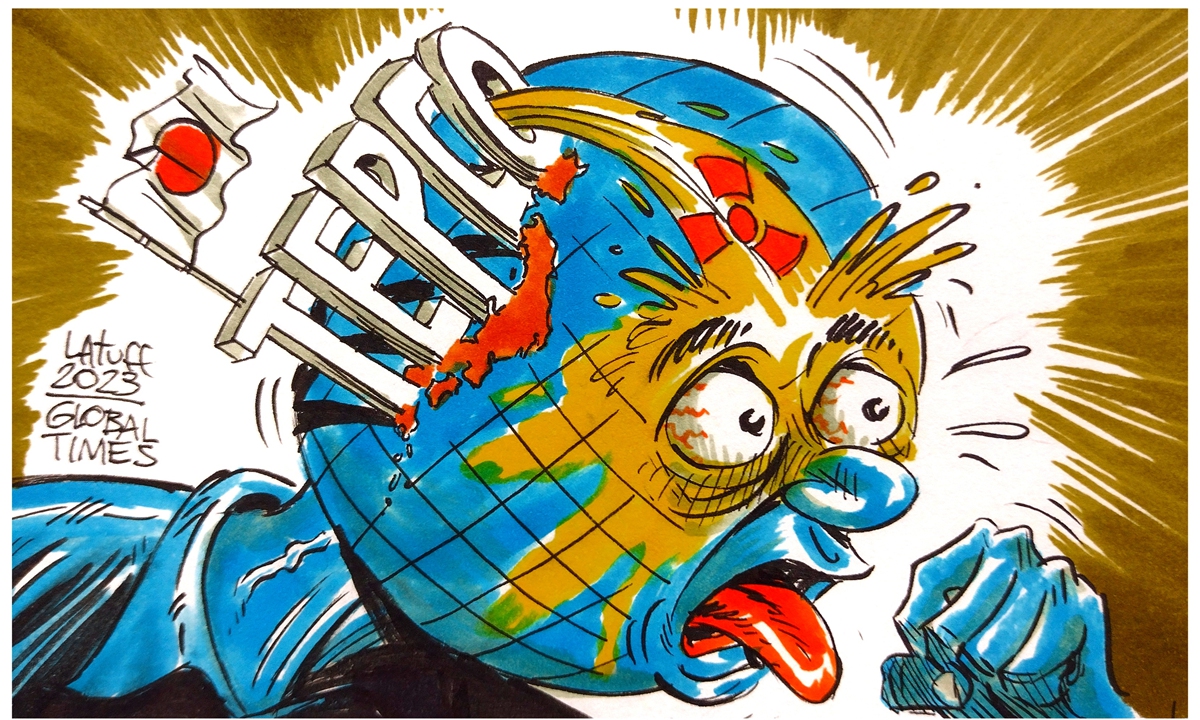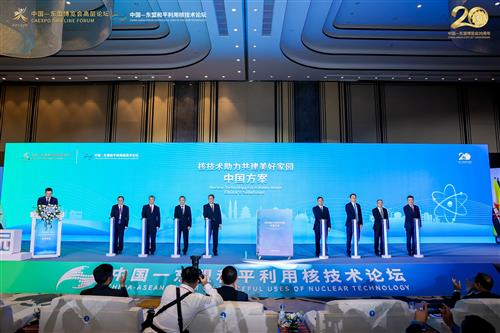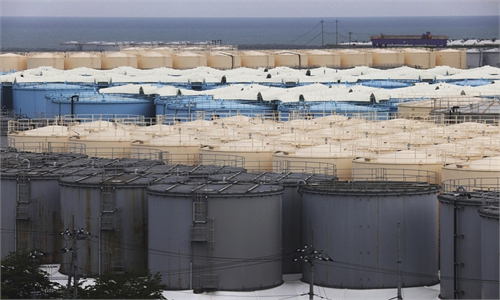
Japan's reckless dumping of nuclear wastewater poses a grave danger to Earth. Cartoon: Carlos Latuff
According to Tokyo Electric Power Company (TEPCO), the operator of the damaged Fukushima Daiichi nuclear power plant, the first round of dumping the nuclear-contaminated water into the sea has recently been completed. TEPCO said it had released 7,800 tons of "treated" water with 1.244 trillion becquerels of tritium as planned.Like before, all data available this time come from TEPCO's sole source with no reference to other radioactive particles apart from tritium, nor any endorsement from any independent third parties. This ongoing self-willed practice continues to raise more questions and concerns from people living in Pacific Rim countries, about the scientific rationality of the discharge as well as the credibility of TEPCO's operation.
The Japanese authority preferred to use the term "treated water" to create the impression that the heavily contaminated water with a huge amount of radioactive particles has been dealt with properly. The only figure of tritium concentration seems low and safe judging by certain "criteria." Yet, as already has been revealed by many reports, the contaminated water contains, even after being treated, various radioactive particles such as carbon-14, iodine-129, caesium-137, among others. Exposure to these particles will have a grave impact on the cells and organs in human bodies. Without data on all the nuclides released into the sea, the result of the detection from the Japanese side has too many defects and cannot be considered scientific.
What is more worrisome is how the data are collected and processed. Ever since the day the Japanese government made the decision to discharge the contaminated water, all the data that should help the public to make the judgment come from one single provider, TEPCO. This is the very company that is liable for the whole mess and one that doesn't enjoy a high reputation at home and abroad due to its dishonorable history of concealing accidents, delaying response and violating its commitments.
Even on the website of the International Atomic Energy Agency (IAEA), which was said to participate in the monitoring of the discharge, the data published so far are all from TEPCO. There is no trace of any independent engagement from the international community at all. Due to the nature of the dumping, which definitely affects the whole globe, a multi-parties participation in the monitoring and supervision of this operation is imperative. Without this, the whole process could hardly be deemed as scientific.
Furthermore, the discharge of the nuclear-contaminated water is so far said to continue for at least 30 years. During such a long process, the potential risk of accidents will increase as the discharge facilities age with time. Neither TEPCO nor the Japanese government has provided any preparedness plan which should be a common practice in a long-term plan. Leaving it be and non-action is neither scientific nor responsible. In the case of this dumping operation, time won't heal but only aggravate the damage. Therefore, an independent and transparent mechanism must be established to monitor the marine ecosystem over a long period of time right from this moment.
Due to all these reasons, it is understandable and reasonable that people from neighboring countries have great concerns about the behavior that will affect the food they are eating, the environment they are living in and the way they are making a living. No one has offered them the full picture. No one has shown them the real undertone. Maybe no one dares to. So they have the right to question, to protest, and to take measures such as limiting the import of Fukushima seafood to counteract the severe impact. Even the US government, although praising Japan for its discharge by lip service, has banned the import of seafood from coastal regions in Japan that are most likely contaminated by the discharge since early this year.Using this kind of "praise" as a pretence of "support from the world" is cheating.
Disregarding the anger from those directly affected and blaming it as irrational to distort the narrative, as what the Japanese prime minister has done recently, is morally wrong. The best way to calm the wrath and concerns over the discharge is to immediately stop dumping contaminated water. As China and other stakeholders have pointed out, if the nuclear-contaminated water is truly safe, Japan wouldn't have to discharge it into the sea - and certainly shouldn't if it's not.
The author is a commentator on internationals affairs, writing regularly for Xinhua News, Global Times, China Daily, CGTN etc. He can be reached at xinping604@gmail.com.



